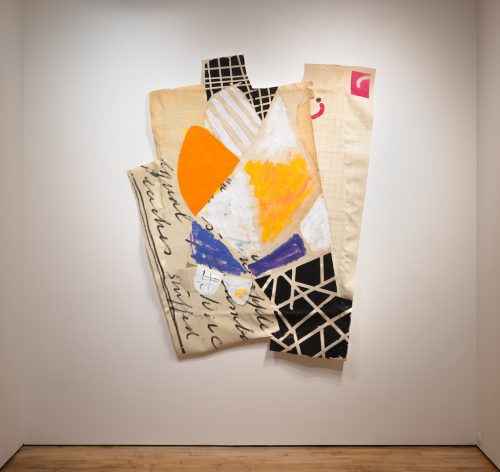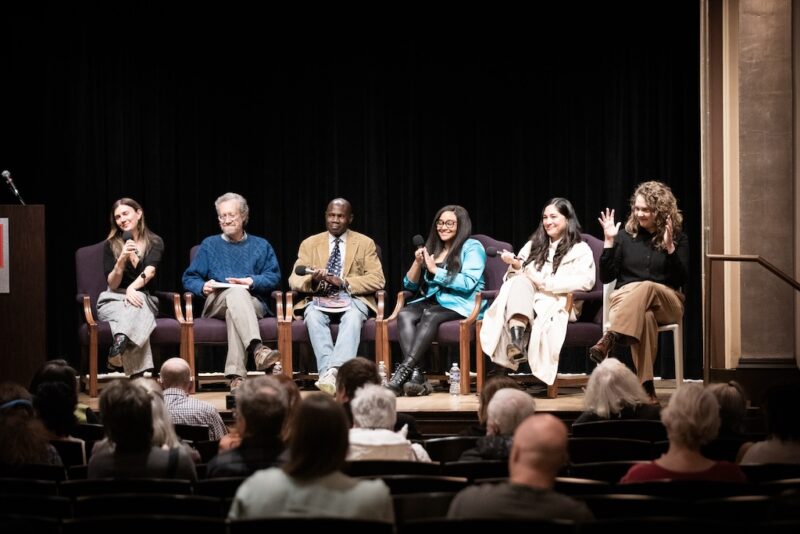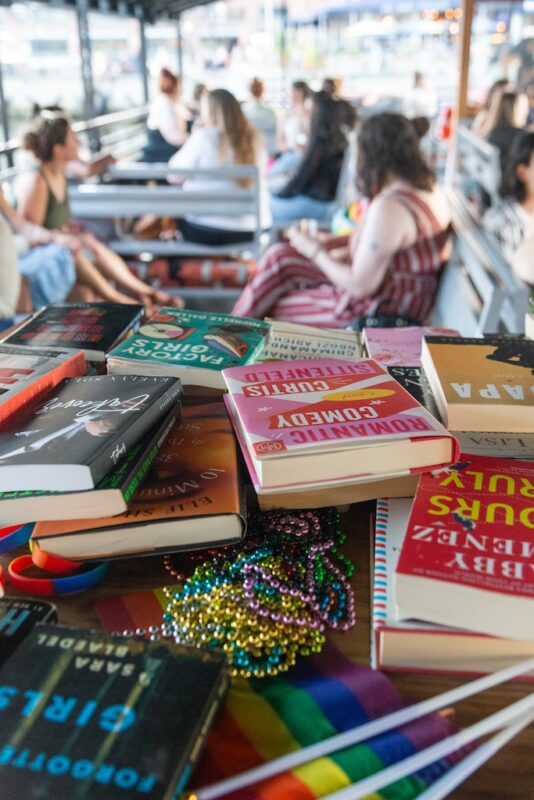I’m back! Olivia Wilde (and her special salad dressing) trends, reports of James Corden being an asshole continue to flow, and a new set of geniuses was announced. Highlights: George M. Johnson’s banned book, Ye, the false fantasy of transhumanism, getting old online, disposing of whales, Liz Truss resigns, chemical hair straighteners linked to cancer risk, Maiya the Don, and Hanif Abdurraqib and Carly Rae Jepsen.
1. HuffPost: George M. Johnson: What Getting My Book Banned Taught Me About Telling Your Truth
George M. Johnson’s 2020 book, All Boys Aren’t Blue, is banned in 29 school districts, making it the second-most banned book in the US. In the memoir, written for ages 14-18, Johnson writes of their “experience growing up Black and queer in America. In my story, I discuss growing up in a Black family who loved and affirmed me; the good, bad and ugly truths about what teens really deal with; and my journey through gender and social identity. My life was and still is full of joy, but also include some painful moments involving nonconsensual sex, as well as my experience with losing my virginity.”
Johnson’s story is one of many that have been suppressed over the history of American literature because it “simply didn’t fit into the neat narrative that white America is somehow still trying to preserve,” and “every attempt at a ban is a reminder that people do not want me to simply live.” All Boys Aren’t Blue, however, is also a lifeline for many who identify with Johnson, and “while all the book bans are weaponizing my words, I know that they’re providing armor for those who have gone through anything I did.”
2. Jewish Currents: On the Nose: Ye
Ye, formerly known as Kanye West, has said and done a slew of dangerous and harmful things in the past two weeks: He “has appeared on Tucker Carlson’s show on Fox News, been photographed with far-right provocateur Candace Owens wearing a ‘White Lives Matter’ shirt, and tweeted that he was going ‘death con 3 on JEWISH PEOPLE’ (which landed him in social media jail). Redacted footage from the Fox interview revealed that Ye made a number of antisemitic comments there too, referring to Hannukah as a vehicle for ‘financial engineering’ and casting Black people as the real Jews, with non-Black Jews as imposters.” Additionally, Ye has also stated that he is interested in buying the conservative right-wing social media platform Parler.
In this episode of Jewish Currents’ On the Nose podcast, Rebecca Pierce, Adam Serwer, and Arielle Angel discuss Ye’s antisemitism and antiblackness, considering the “familiar grievances about acknowledgement and allyship.”
3. LA Times: Column: I once fell for the fantasy of uploading ourselves. It’s a destructive vision
As an undergraduate, I had a fleeting interest in transhumanism, a philosophy that “a command of technology can liberate humans from the limits of mortal flesh” and that also has eugenicist underpinnings. My experience was short-lived mostly because I quickly became disinterested in the theory, and my 19-year-old brain had another theory to get engulfed in for a month before moving on yet again. Increasingly, however, transhumanism and longtermism, “the idea that the future’s hypothetical digital people matter more than the billions of humans alive today because there will be at least 1058 of them,” have gotten mainstream attention with billionaires like Elon Musk and Mark Zuckerberg’s desires to escape into space or the Metaverse.
The idea of transhumanism can be seductive, but “our minds are inseparable from the meat of us, with its unsolvable mysteries” because “our minds can conceptualize a self only because they’re receiving input from the rest of the body, through hormones, heartbeats, gurgling guts.” Transhumanism creates an enticing argument for absolution, but, at the end of the day, “Mars and Metaverse are not the future. We must save the one planet that we have. It’s the source of our miraculous bodies, which are far greater than any machine.”
4. Wired: Growing Old Online
As a younger millennial, I grew up on computers and spent a lot of time online from a young age. While I tend to join social media platforms a little late (I didn’t get on Twitter until 2017), I generally know what is happening online. Although “each generation thinks they reinvented the world; each generation is mostly wrong. Millennials didn’t invent the internet, but we can plausibly claim to have invented social media in the form in which it exists today.”
I was born at the end of 1995, and social media has been around for most of my life (Myspace was founded before my eighth birthday). But as millennials age, we are “arguably, the first generation to have been young on social media and to then get older there.”
To me, much of what Gen Z does online is formulated on the internet of the past two decades, but there are times when the internet feels like it’s moving past me (Musical.ly is an example). Youth online is a currency, and the internet is an “ecosystem where all the instruments are tuned toward whatever is new, youth will always make the loudest noise. The young take up the most space online, by cultural volume if not necessarily by actual numbers.” In this essay, Helena Fitzgerald looks back at how the internet shaped who she is today, writing that “questions of aging are questions of identity and purpose. This generation is the first to have to decide whether being extremely online is sustainable past youth, which perhaps gives us a chance to once again redefine our relationship to social media and the internet itself.”
5. Nautilus: Humans Are Overzealous Whale Morticians
A list of random facts came across one of my feeds recently that noted how whales don’t die, they simply no longer have the energy to surface and breathe, so they drown. A cursory Google search didn’t necessarily confirm or deny this, but a Scientific American article on whale and dolphin sleep stated that “it is actually rare for a marine mammal to ‘drown,’ as they won’t inhale underwater; but they do suffocate from a lack of air.”
Whatever the case, when whales die, their carcasses still contain massive amounts of nutrients that, for millennia, have fueled ecosystems. When they die, “whales who settle on the ocean floor attract an astonishing necrobiome, the community of scavengers who feed upon the dead: hagfish, mussels, limpets, isopods, sleeper sharks, chemosynthetic bacteria. Some, like bone-eating Osedax worms, subsist exclusively on benthic carcasses. Whalefalls are oases in the abyssal wastes, as enticing to life as a Saharan watering hole.” However, the whales that make it to the shore, “buoyed by internal gasses, conveyed by currents—support complex ecosystems of their own. Vultures and seabirds peck at eyes and blowhole; sharks strip blubber in the surf.” Due to various safety concerns, most whale carcasses that float ashore are disposed of, “depriving coastal ecosystems of nature’s greatest windfall.” Now, scientists are asking if there is a better way to dispose of the great behemoths.
6. Democracy Now!: “We Are a Democracy in Name Only”: George Monbiot on Truss Resignation & Who Will Be Next British PM
British Prime Minister Liz Truss has resigned after only 45 days in office. Although she held the office for the shortest term in history, Truss, a member of the Conservative Party, had quite an impact as “her low-tax, low-regulation financial policies were widely criticized after they sent the pound plummeting, causing several senior ministers to quit.”
Anne Goodman talks to British journalist George Monbiot “about [Truss’s] short-lived time in office, what this says about the Conservative Party, and who her likely successor will be.” While it might seem like a national popular vote should be the next step in selecting a new PM, it’s actually only Conservative Party members who get a vote—as Monbiot notes, that’s only about 160,000 people, “a small majority of whom voted for Liz Truss. So that’s 0.1% of our population. And any one [of] these completely discredited characters could be brought back in as our prime minister without any of us having a say over it.” Theoretically, Boris Johnson could even come back.
7. The World Responds to Truss’s Resignation
Of course, Twitter and the British media had hilarious reactions to the news of Truss’s resignation. In honor of Truss’s favorite song, Taylor Swift’s “Blank Space,” Channel 4 put together a montage featuring the track. BBC did not take Truss’s music preferences into consideration, however, instead choosing Rihanna’s “Take a Bow” to use as the soundtrack for their montage.
8. New York Times: Hair Straighteners May Pose a Small Risk for Uterine Cancer, Study Finds
A new decade-long study has found that “women who use chemical hair straighteners frequently could have a higher risk of developing uterine cancer than women who have never used the products.” While the data are not conclusive, and “the study did not establish a cause-and-effect relationship between hair straighteners and cancer of the uterus,” it did find that for women “who had never used hair straighteners, the risk of developing uterine cancer by the age of 70 was 1.64 percent, the research found, while the rate for frequent users of straighteners was more than doubled at 4.05 percent.” Further, “Black women might be disproportionately affected: Sixty percent of participants who reported using hair straighteners self-identified as Black women, according to the study,” however the increase was found in women of all races.
Dr. Alexandra White, the study’s lead author, noted, “We’ve seen this association between hair straighteners and breast, ovarian and now uterine cancer — it’s been a consistent finding among hormonally driven female reproductive cancers.” But she doesn’t want people to panic.
9. YouTube: The Maiya The Don “On The Radar” Freestyle (PROD by @prodjcabz & @jaysonsankar)
On October 7th, Maiya The Don released “Telfy” and it has been all over my feeds since. This was the first time I’d heard Maiya, but I’m a fan. The Brooklyn rapper stopped by On The Radar for this freestyle released this week, and she ate this.
10. Object of Sound: The Wonders of Songwriting, Pt Three (feat. Carly Rae Jepsen)
On July 10th, 2017, Hanif Abdurraqib gave a presentation in New York on Carly Rae Jepsen’s “Your Type” from her album EMOTION. The presentation had only one slide with capitalized white text on a black background reading, “TELL A FRIEND THAT YOU’RE IN LOVE WITH THEM TONIGHT.” During the presentation, Abdurraqib “read a long thing about desire, and about that thin veil between realizing you like someone and realizing you LIKE someone, about falling in love with friends, about being platonically in love with friends, about treating platonic love with the same generosity and rigor as romantic love. But mostly about the bravery of Big Declarations Of Emotion.”
An image of Abdurraqib giving the presentation next to the slide frequently circulates online, and it was one of my first introductions to his work. Abdurraqib has written about Jepsen’s work and emotions extensively, and in the third episode of his podcast’s songwriting series, The Wonders of Songwriting, the two writer’s-writers “talk about the unique collaborative process that went into narrowing that collection of songs down to the thirteen tracks on [Jepsen’s latest] album. Carly opens up about the challenges and opportunities of songwriting during the pandemic, and her drive to keep challenging the idea of what a pop song can be.”






